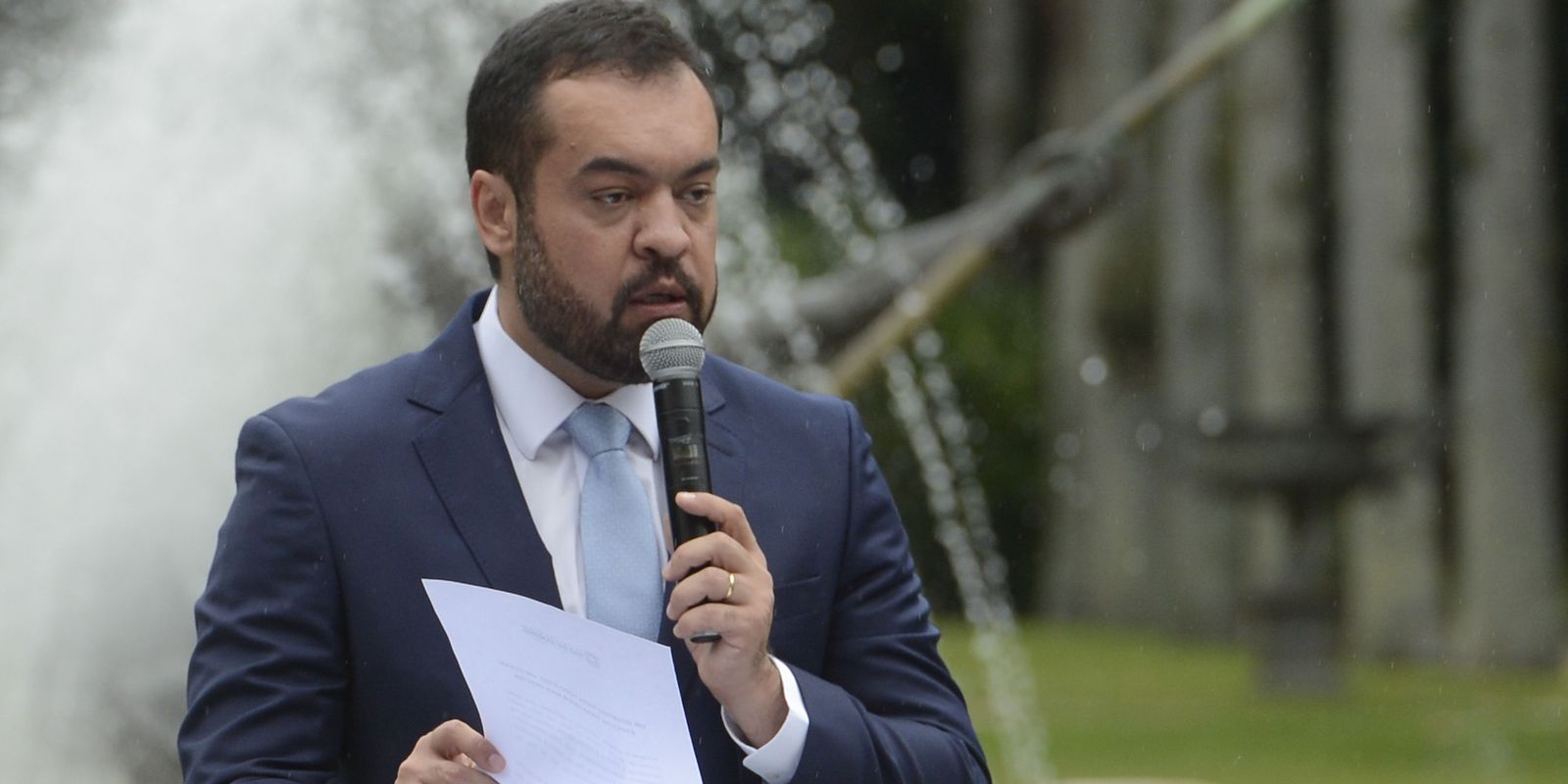The Rio de Janeiro Fiscal Recovery Plan may undergo adjustments before being resubmitted to the Ministry of Economy, said today (19) the governor of Rio de Janeiro, Cláudio Castro. He met in the late afternoon with Minister Paulo Guedes and asked for 15 days to present a new version of the text.
“We started to discuss what had been put in the opinions [do Tesouro Nacional] and there was great goodwill on both sides. The state [do Rio de Janeiro] deepened the points that the ministry considered unclear or wrong and they deepened the points that they felt the state failed to comply with. Both sides realized that it is possible to move forward before a final decision on the new RRF [Regime de Recuperação Fiscal]”, said the governor, after about two hours of meeting.
The governor said he had asked for more time for the exchange of information between the technical teams of the state of Rio de Janeiro and the National Treasury, before a new meeting can be held in two weeks’ time. According to Castro, there are seven points of debate in the proposal.
“We have issues of legislation, of understanding what the plan is, of understanding the economy of Rio de Janeiro itself. There are about seven points on which the teams will seek convergence”, detailed Castro. In a note, the Ministry of Economy said only that the two sides are working to resolve outstanding issues and have agreed to a new meeting within 15 days.
Rejection
Rejected by the National Treasury and the Attorney General’s Office of the National Treasury, the original plan for maintaining Rio de Janeiro in the RRF was classified as precarious by the economic team. The governor did not rule out that the proposal could be adjusted, but said that Rio de Janeiro is not outside the RRF and that the Treasury was based on “wrong” premises.
“Let’s get to a common denominator. Before we talk about a review of the plan, let’s clarify the points. I don’t rule out changes, but first let’s defend what we’ve done. This process of dialogue and adjustments is totally reasonable”, concluded Castro. According to him, the discussion is in the opinion presentation phase.
Last week, the Treasury presented an opinion against the maintenance of Rio de Janeiro in the RRF. For the agency, the fiscal adjustment plan has inconsistencies, such as the lack of a safety margin to absorb drops in economic growth, high dependence on oil royalties and nominal increases for local civil servants. According to the Treasury, under the current plan, the state’s current spending will rise by 45.2% by 2030, while revenues will increase by 36.9%.
Historic
Since 2017, the state of Rio de Janeiro has been in the Tax Recovery Regime, which provides for the suspension of payment of installments of the state’s debt with the Union in exchange for fiscal adjustment measures, such as cutting spending, freezing civil servants’ salaries and local privatizations. In the first three years of validity alone, the state failed to pay BRL 92 billion to the Union.
In 2020 and 2021, Congress approved amendments to the RRF law, increasing the duration of the special regime from six to ten years, with a one-year deadline for submitting a new adjustment plan. Conditions for joining the RRF have been relaxed. The rapporteur’s amendments were removed from the state spending ceiling and the requirement that local SOEs be fully privatized, with local governments holding shares in the companies, was dropped.
With the changes, Rio de Janeiro presented a new Fiscal Recovery Plan to extend the debt longer and make adjustments with more lenient rules than in the original plan. The new plan would allow for the rescheduling of another R$52.5 billion in debt with the Union by 2030, in addition to the R$92 billion currently suspended.









